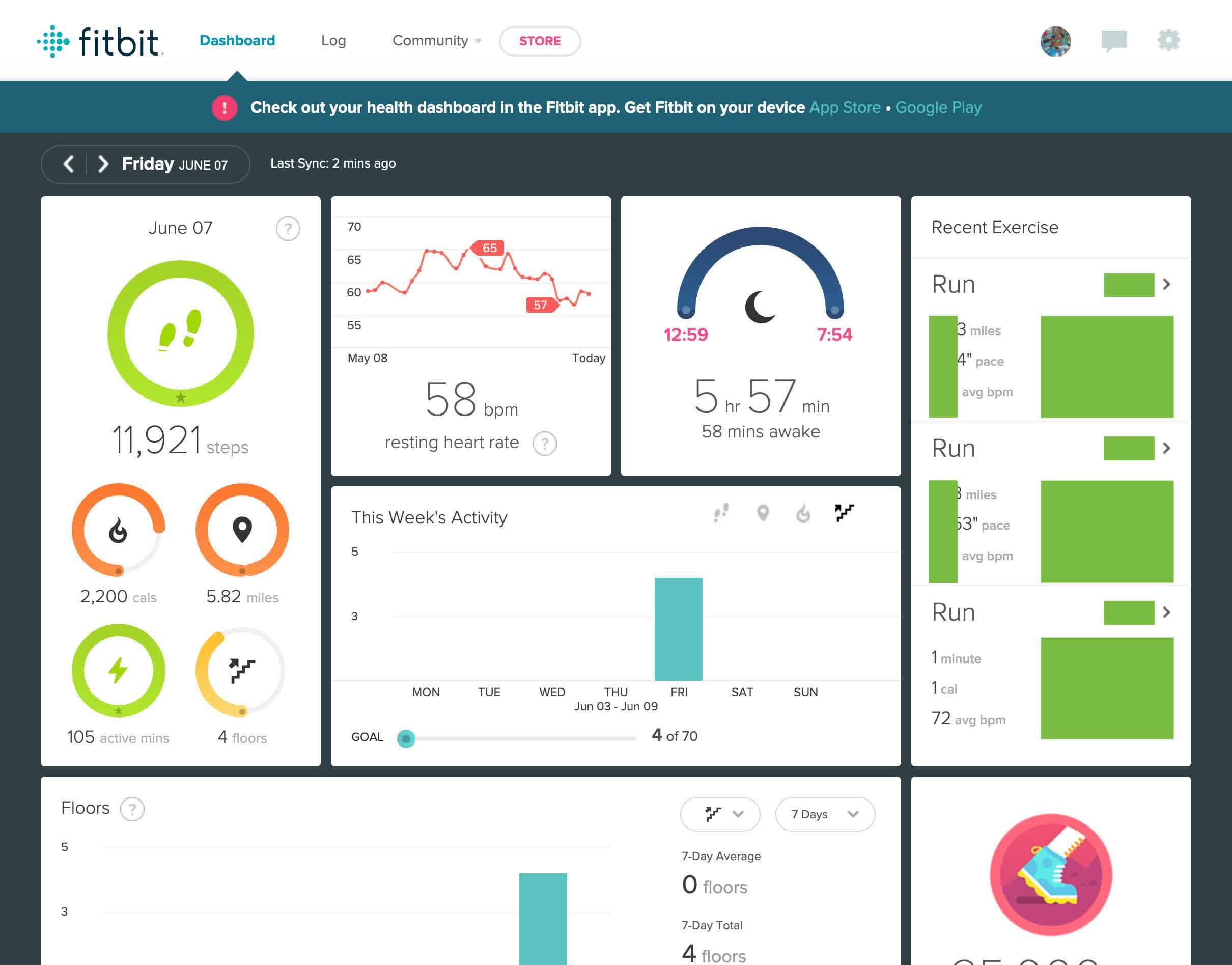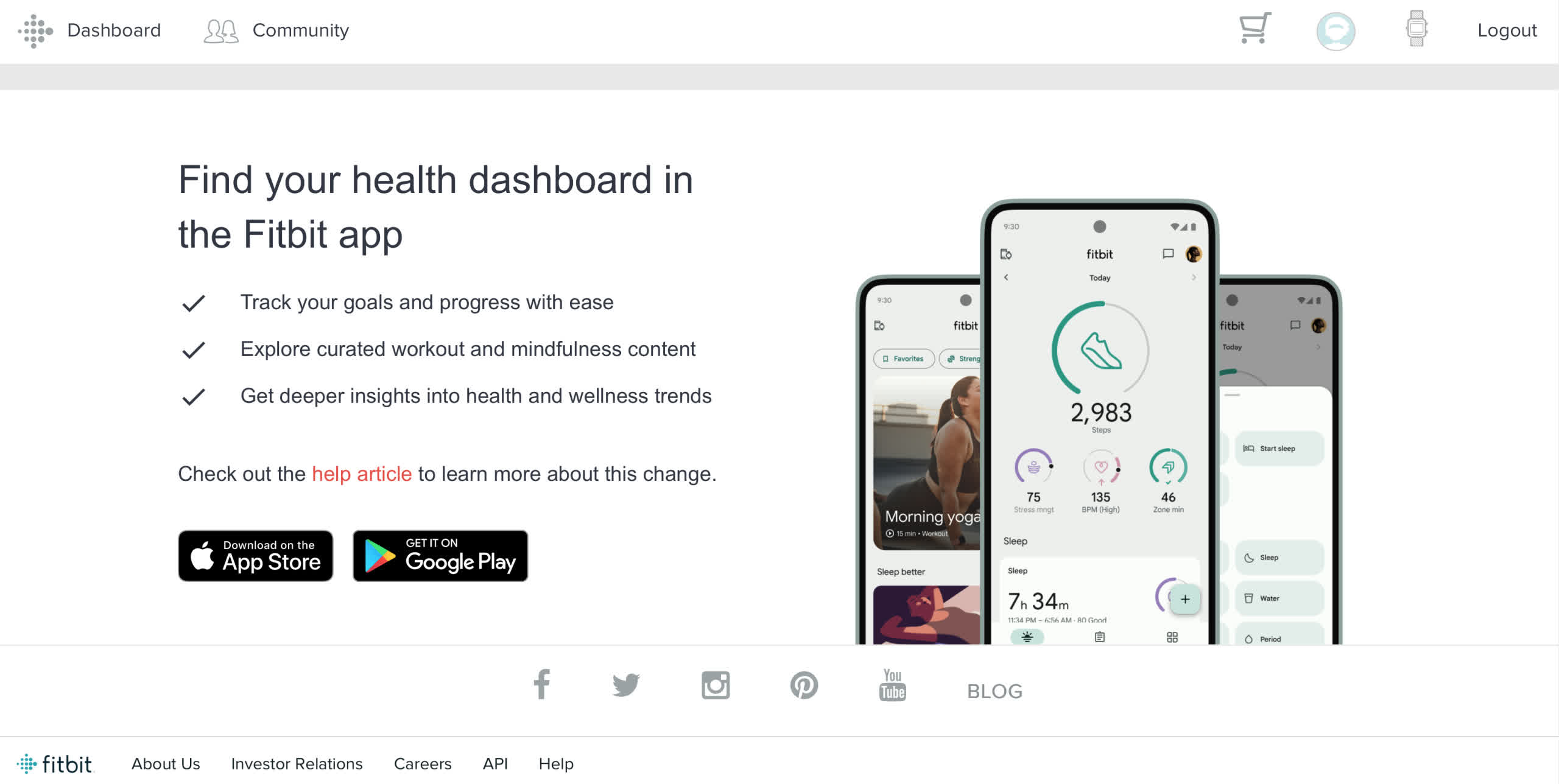Editor’s take: In its early days, Google’s motto was “Don’t be evil,” prominently displayed in its corporate code of conduct. However, post-2015’s Alphabet restructuring, this motto changed to the milder “Do the right thing.” By 2018, Google had entirely removed both phrases from its CoC, signaling a shift in company ethos.
As of 10 days ago, Fitbit users have lost access to their web dashboard for tracking fitness goals. The website now serves as an advertisement for the Fitbit mobile app for iOS and Android. Although Fitbit announced this change in June, users remain dissatisfied.
Users miss the capability to track their fitness goals on a full-screen dashboard via their computer. Now, they’re limited to the smaller screens of their phones, which can’t display as many metrics at once as the web dashboard could.

Fitbit’s former web interface.
“It’s particularly awful for anyone with a visual disability or a finger dexterity issue,” said one frustrated user in the Fitbit forums. “It’s still bad for everyone else because you just can’t see as much on a 3-inch screen as you can see on a real computer … Bring back the web interface!!”
Additionally, the app lacks some features the web interface had, such as food logging.
Fitbit tried to upsell the change by assuring users they wouldn’t lose their data during the transition (aside from food logging). However, this provided little consolation to those preferring the comprehensive web interface. Moreover, the Fitbit representative appeared more like a Google subordinate than a customer advocate.
“Combined with Google’s decades of being the best at making sense of data, it’s our mission to be one combined Fitbit and Google team,” the Fitbit spokesperson continued in the forum. “Consolidating the Fitbit.com dashboard into the Fitbit app is a part of that mission and will allow us to focus on features that provide even more valuable insights to our users.”

What used to be Fitbit’s web-based dashboard
Google’s acquisition of Fitbit in 2021 was controversial from the start. Users, privacy watchdogs, and regulators raised concerns that the purchase might be an effort to boost Alphabet’s advertising revenues by harvesting user health data.
Google allayed these fears by promising not to engage in such data mining, eventually securing regulatory approval. However, this promise proved insincere, as Fitbit users still have to agree to Google’s privacy policy, which includes sharing “anonymized” health data with advertisers. Fitbit account setup states:
“I consent to Google using my health and wellness data to provide Fitbit products and services, based on my Fitbit setup, and in the ways described above [privacy policies]. I understand that I can stop using Fitbit at any time, and delete data in my Google Account.”
Since then, Alphabet has shifted Fitbit’s focus from the device itself to its app. Google has repeatedly reduced hardware features, including syncing with computers, pushing customers to rely on the app, which undermines the purpose of the device.

Google’s Fitbit app experience
With the current AI boom, Google has ambitious plans for Fitbit. Upcoming features include experimental AI capabilities on the watch and a custom-designed LLM integrated into the app, likely enabled by default with limited opt-out options.
Google has a history of mismanaging the Fitbit brand according to users. Customer feedback has often been ignored, and issues are frequently downplayed or denied.
For example, when Fitbit Charge 5 users reported rapid battery drain following a firmware update, Google acknowledged the issue but insisted it wasn’t related to the firmware. Despite making this claim in January, the problem persists, and PC World has criticized Fitbit products as being unreliable.




